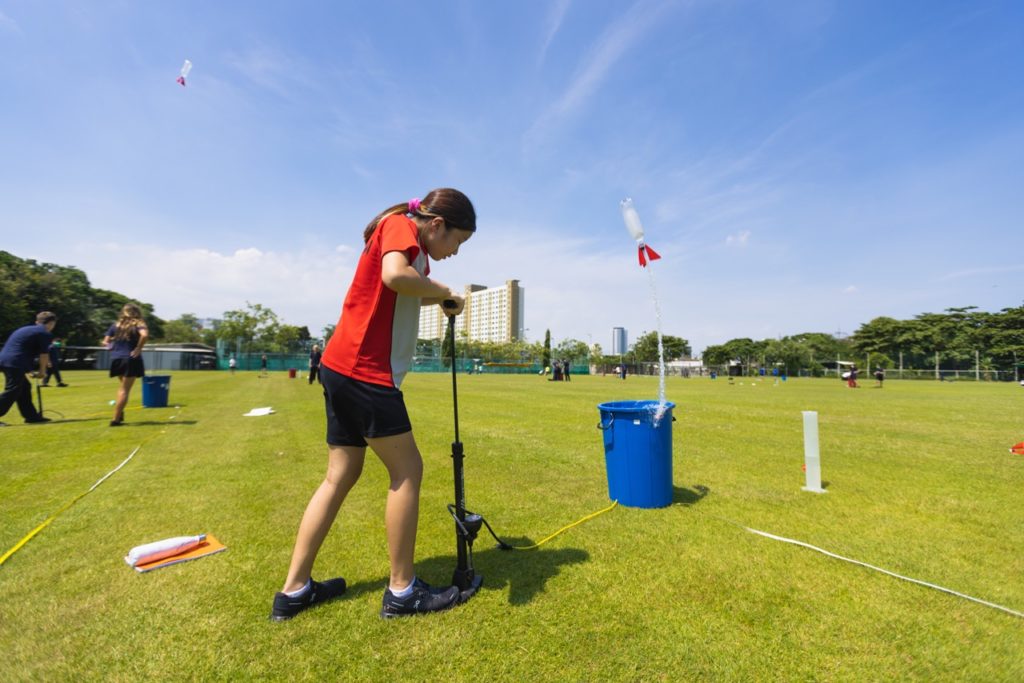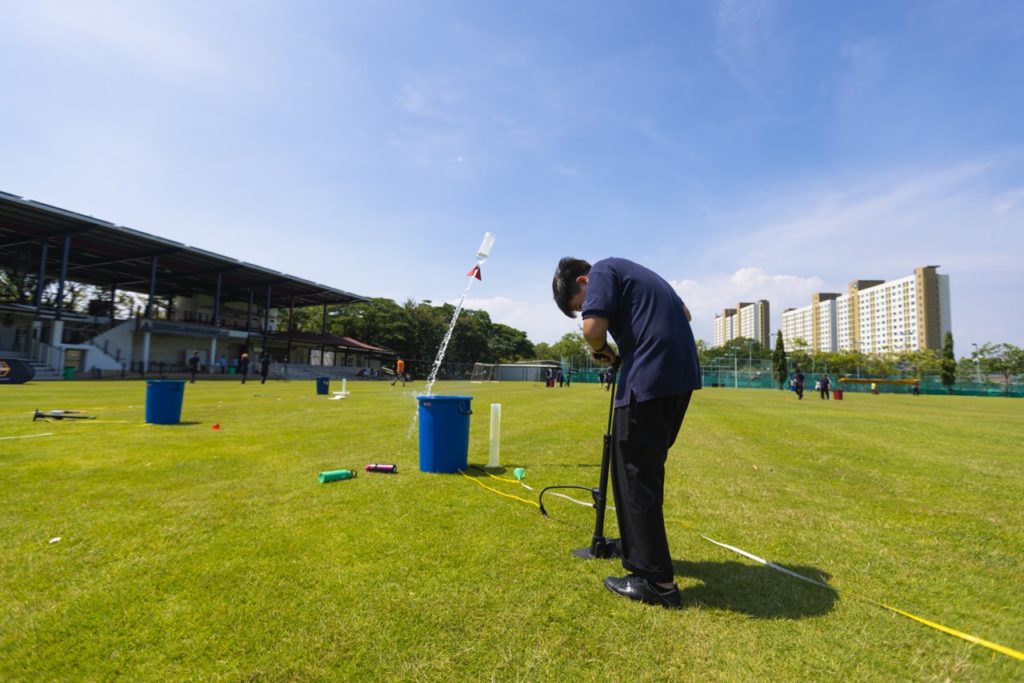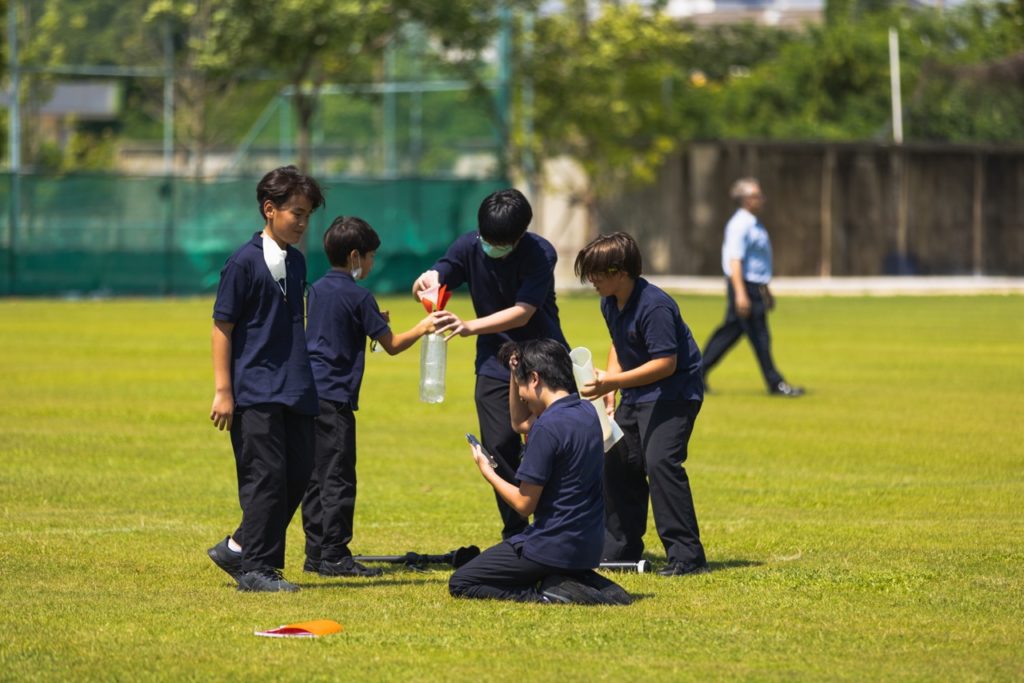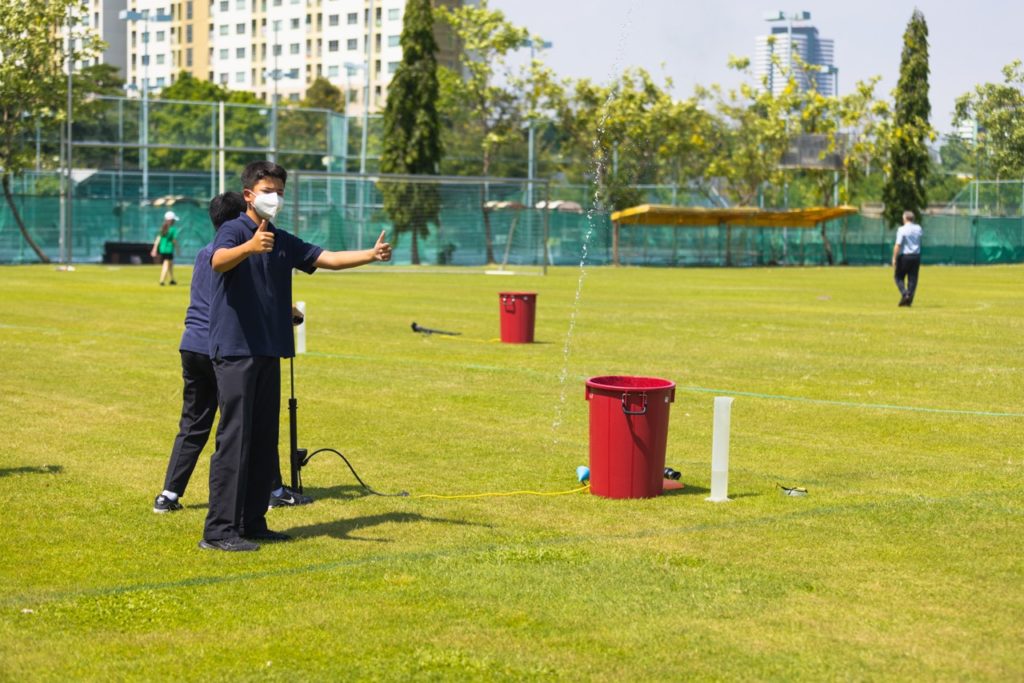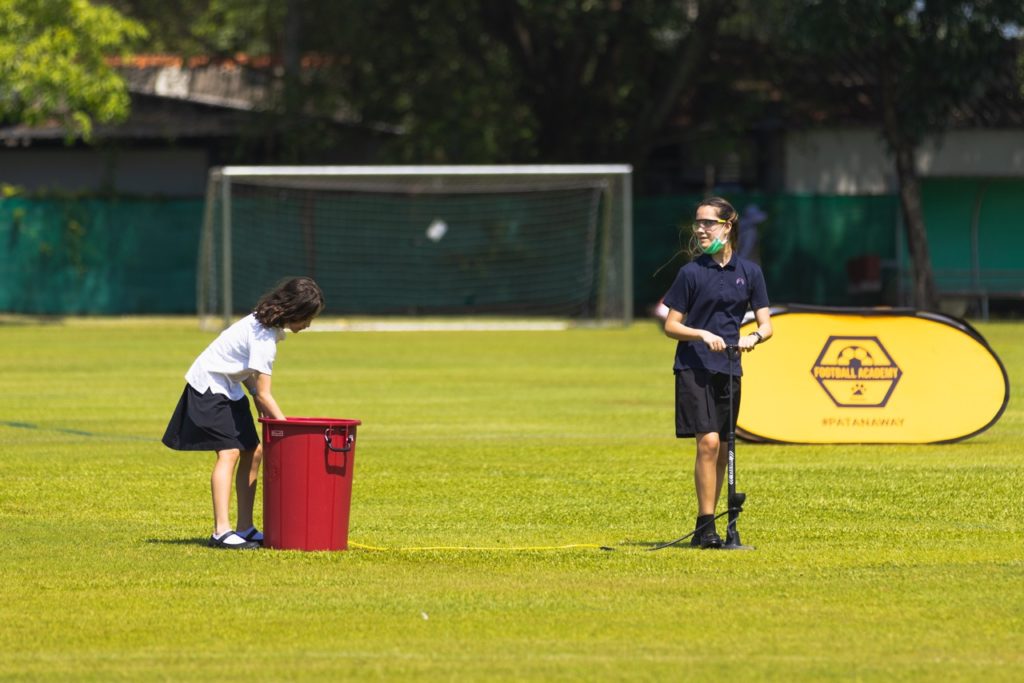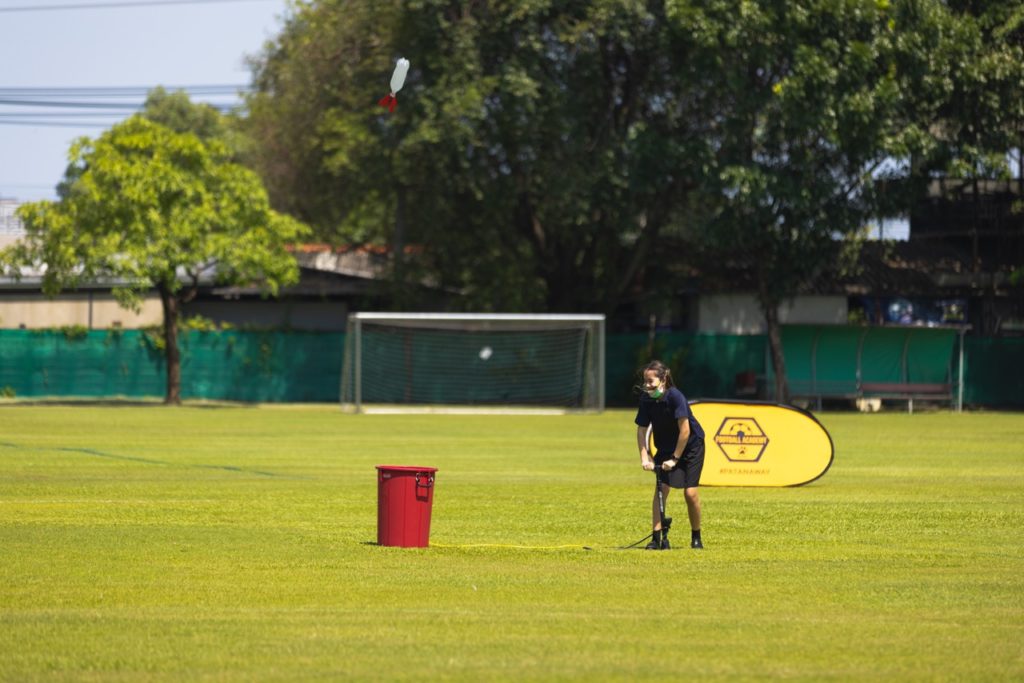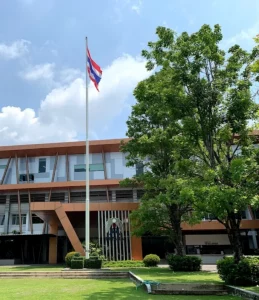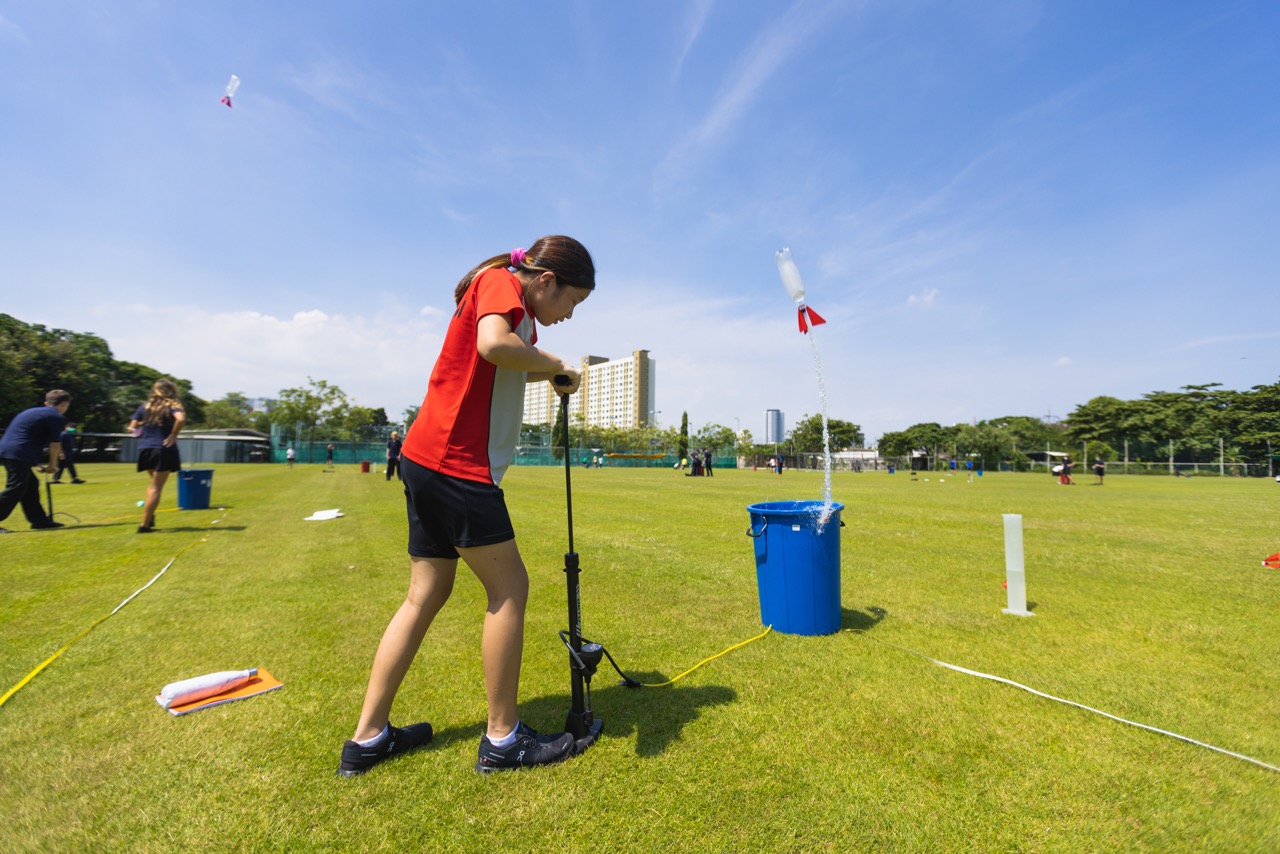
It IS Rocket Science in Year 9!
Blast off with Year 9 water rockets…
Year 9 Physics students gained a deeper understanding of Newton’s Third Law by taking their learning outside for some real rocket science! While many people will recognise Newton’s Third Law, “For every action there is an equal and opposite reaction”, what does it really mean? By building and blasting off water rockets, our Year 9 students learnt that in order to make their rockets accelerate upwards, they needed to make the water accelerate downwards by pumping air into the bottle rocket.
Year 9 students investigated the following Research Question: “How does the volume of water affect the height of the rocket’s flight?” By taking careful experimental results, they found that there is an optimum volume of water that will maximise the height of the rocket’s flight: not too much water, but also not too little. Why is that? There’s some great Science behind the answer, let’s have a Year 9 Physics student explain it!
“With too much water volume, the available volume for the pressurised air is not enough to expel the water out of the rocket fully. Additionally, a high volume of water will add mass to the rocket, also resulting in a reduction in its acceleration. However, with too little water, the total mass of the accelerant is reduced, causing a drop in the acceleration of the rocket. From the hard work and labour of all the Year 9 physics students, we gleaned the optimal volume of water to be 250-300ml for a 2L bottle rocket. Overall, a fun experiment and I would love to do it again.”
Dan Baker, Year 9
